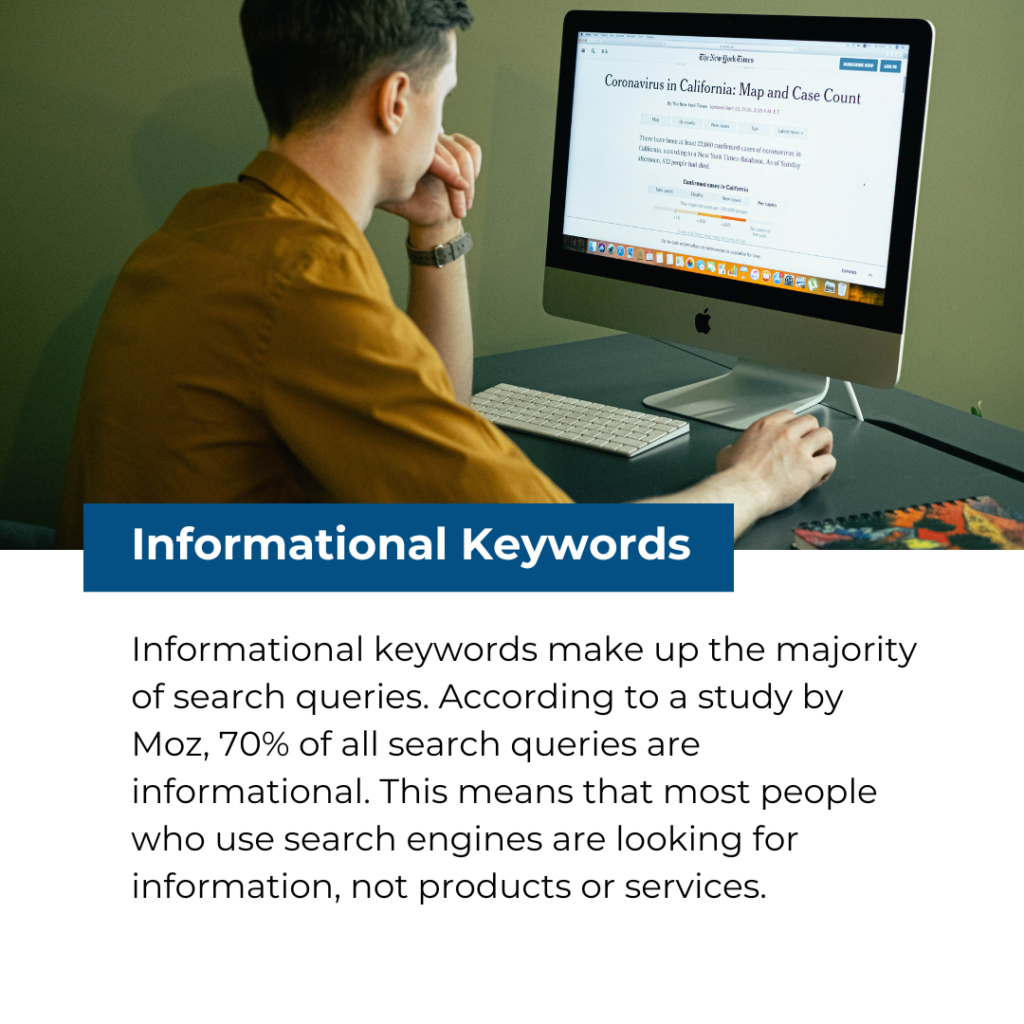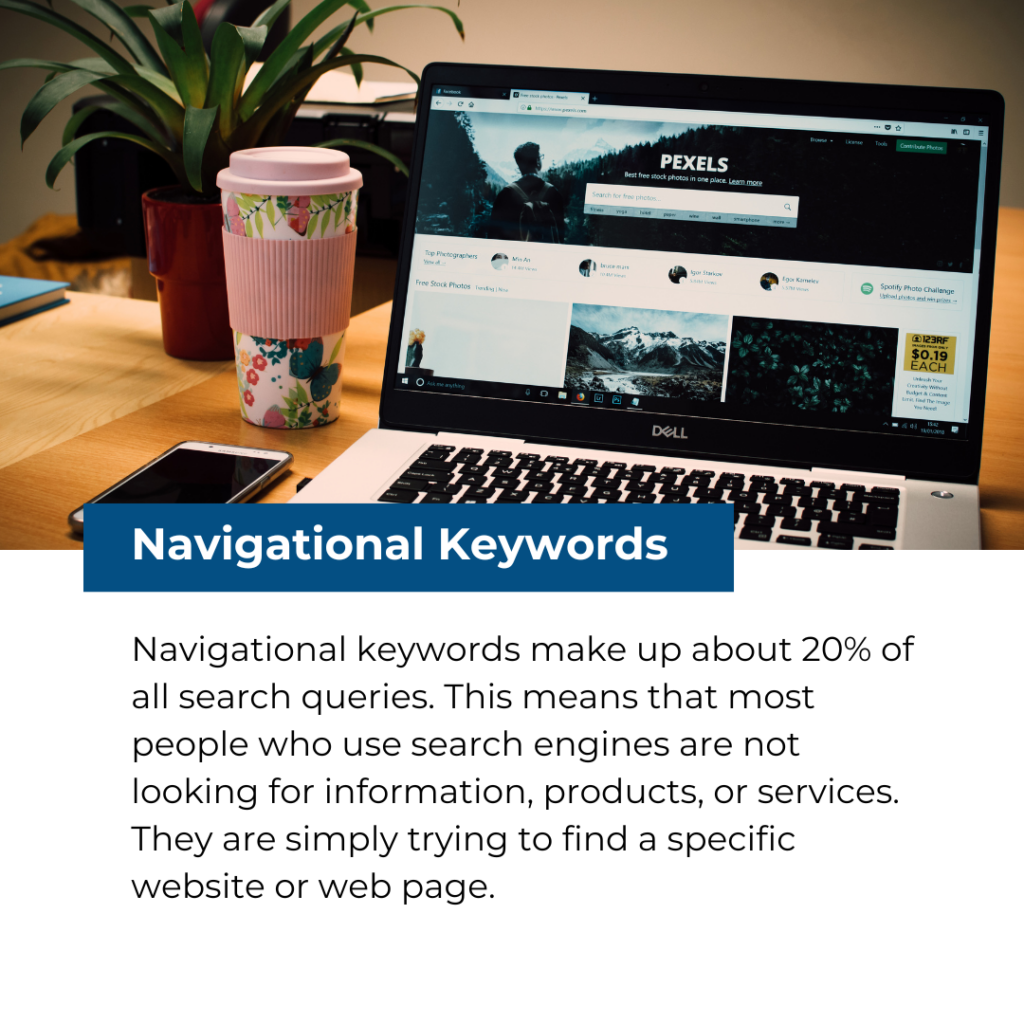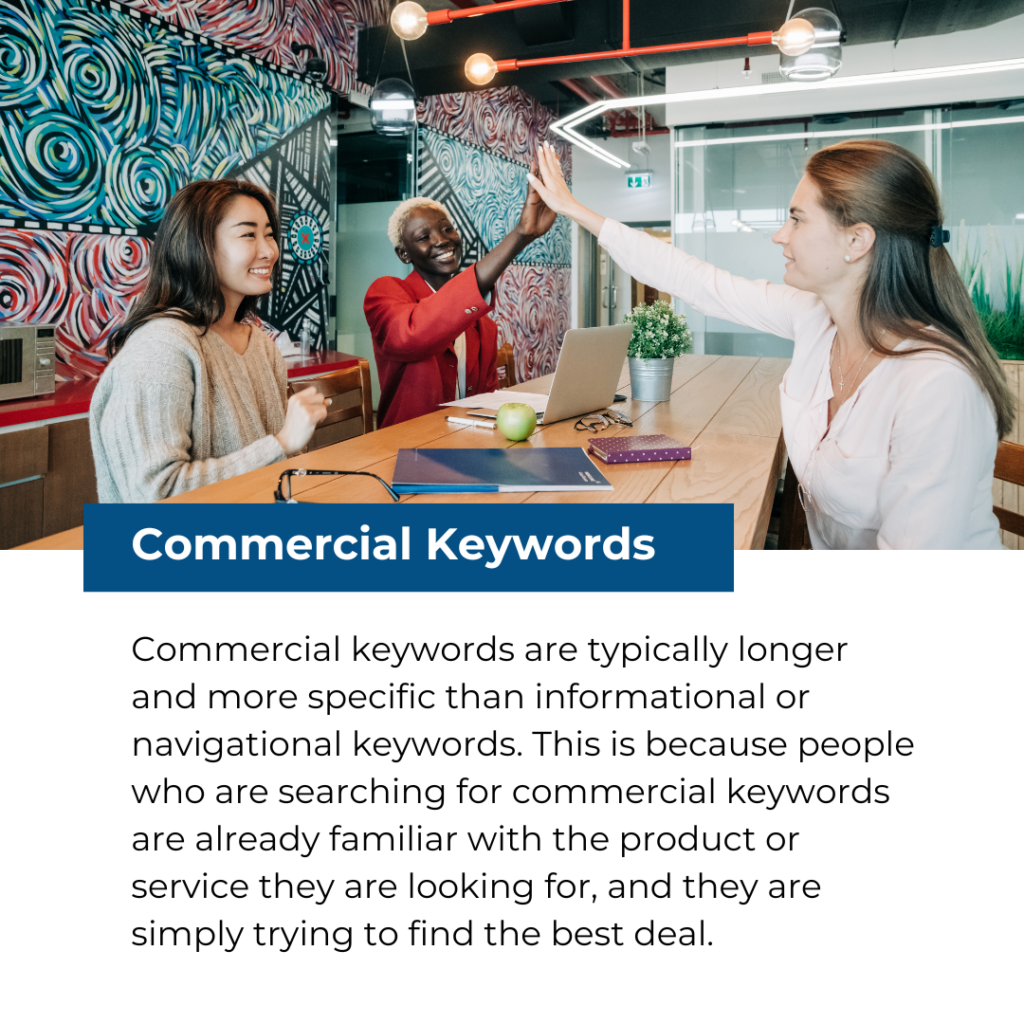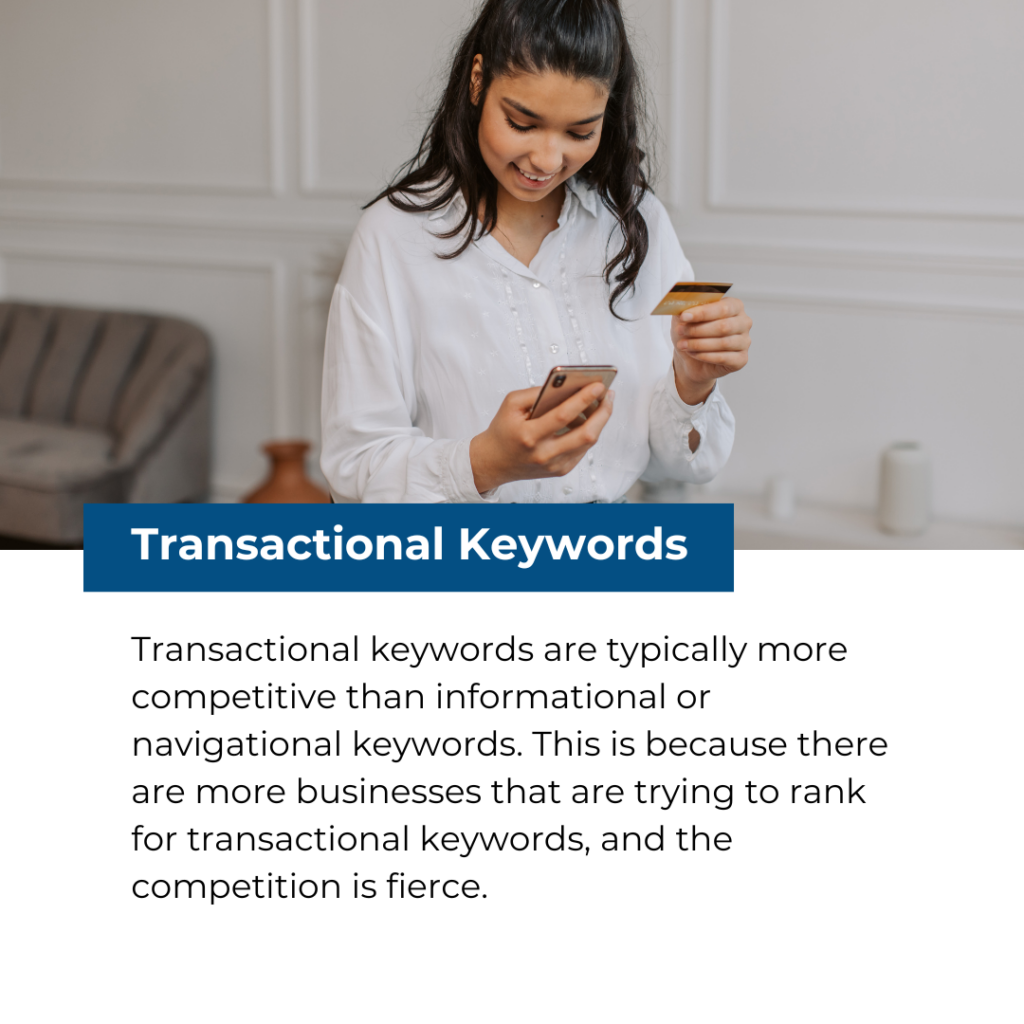
The Science of Keywords: Understanding Different Types and Their Impact
Hey there!
Have you ever wondered why certain websites show up at the top of your Google search results while others don’t even make it to the first page? Well, it all comes down to the types of keywords used in the website content.
Today, let’s talk about one of the most important aspects of SEO – KEYWORDS, and their types.
What would this blog post cover?
- Definition of keywords and why they matter
- Overview of the four types of keywords and their importance
- A detailed description of each type of keyword
- Examples of how each type of keyword can help improve your SEO efforts
- Other types of keywords
What are keywords?
Keywords are the terms or phrases that people type into search engines when they’re looking for something online. As you might imagine, choosing the right keywords is crucial for getting your website to show up in search results.
But did you know that not all keywords are created equal? That’s right, there are different types of keywords, and knowing which ones to use can make all the difference.

So why do different types of keywords matter?
Well, using the right keywords can help you attract the right audience, improve your search engine rankings, and ultimately drive more traffic to your website. And, by doing some text mining, you can identify additional related terms and subject headings that could be useful for your SEO strategy.
In short, if you want to get the most out of your SEO efforts, it’s important to understand the different types of keywords and how to use them effectively.
So get ready to dive in and start optimizing your content for search engines!
| Key Takeaway Choosing the right keywords is crucial for SEO success, as they can attract the right audience, improve search rankings, and increase website traffic. Understanding different keyword types and their effective use is essential for optimizing your SEO strategy. |
Types of Keywords
Now, let’s take a closer look at each type of keyword in this section:
1. Informational Keywords
Informational keywords are used by searchers looking for an answer to a specific question or general information on a topic. These keywords can be in the form of questions or phrases such as “how to”, “what is”, or “tips for”. While these keywords may not have immediate commercial intent, they can be useful in building brand awareness and establishing your authority in a particular subject area.

By providing high-quality content that answers these informational queries, you can attract new visitors to your website and potentially convert them into customers down the line.
How does this help?
- Increase website traffic by attracting visitors searching for information on a particular topic
- Establish your brand as a thought leader in your industry
- Generate backlinks from other websites looking to cite your informative content
- Build brand trust and loyalty by providing valuable information to potential customers
Example: A yoga studio creates a blog post titled “10 Yoga Poses for Beginners”. By targeting the informational keyword “yoga poses for beginners”, the studio can attract new visitors to their website who are looking to learn about yoga and potentially convert them into paying customers.
More examples:
- Father’s Day
- World Technology Day
- Difference between Fitness and Wellness
But how do you distinguish informational keywords?
It’s simple. By ‘QUESTION WORDS’. Most of these usually contain clues like how, what is, why, tutorial, etc.
What about the Google results page for informational searches?
They do have carousels, knowledge panels, info boxes, etc, that provide quick answers to users whenever applicable.
Do these keywords carry any intent?
Less when compared to commercial or transactional keywords. However, as per recent studies, they can be valuable to build brand awareness, especially when the intent is to educate your readers/audience.
2. Navigational Keywords
Navigational keywords are used by searchers who are looking to find a specific website or page. These types of keywords are usually brand or product-related and can include company names, product names, or website URLs.

While navigational keywords may not be as important for attracting new visitors to your website, they are crucial for ensuring that existing customers can find your website without much difficulty.
How does this help?
- Improve website usability by making it easy for customers to find your website
- Increase brand recognition by making your website more easily accessible
- Protect brand reputation by ensuring that customers can find your official website instead of potentially harmful imitations
Example: A customer searching for “Amazon” is using a navigational keyword to find the official Amazon website. By optimizing its website for the navigational keyword “Amazon”, the company can ensure that customers are able to find their website with ease.
More examples:
- Youtube Music
- How do I reset my Netflix password?
But who uses navigational keywords?
Navigational keywords are commonly used by people who already know about a specific brand, company, or product and want to find their website or physical location. Such types of keywords are used to navigate directly to a website or webpage rather than searching for general information.
Do they drive organic traffic?
Absolutely. Navigational keywords can be an essential source of organic traffic when the brand or site is already well-known and popular. By using this type of keywords, users can save time by directly accessing the desired website or information without having to go through search results.
What is the intent like?
Navigational keywords are a type of long-tail keyword that indicates to search engines the intention to navigate to a specific page, unlike informational keywords (aimed at obtaining information) or transactional keywords (aimed at making a purchase). As said, they are commonly used by individuals who already know the website or brand they want to visit and want to find it quickly.
| Key Takeaway Informational keywords help increase website traffic and establish brand authority by providing valuable information to users, while navigational keywords improve website usability and brand recognition by making it easy for existing customers to find your website. |
3. Commercial Keywords
Commercial keywords are the search terms used by users who are looking to make a purchase. These are keywords that indicate a user’s intent to buy, and they play a crucial role in search engine optimization (SEO) as they help businesses attract more potential customers to their websites.

In fact, commercial keywords are one of the most important types of keywords that businesses should focus on when trying to optimize their website for search engines. By analyzing the SEO potential of commercial keywords and adding them to the targeted keywords list, businesses can improve their website’s search engine ranking and attract more visitors who are ready to make a purchase.
How does this help?
- Attract potential customers who are searching for your brand or products/services
- Increase brand awareness by appearing in search results for related terms
- Build credibility and authority in your industry by appearing in the top search results for relevant commercial keywords
- Strengthen the relationship with your existing customers by appearing in search results for their searches
Example: A clothing brand creates a blog post titled “10 Trending Fashion Items for Summer”. By targeting the commercial keyword “trending fashion items for summer”, the brand can attract potential customers who are searching for fashion items for the summer season and potentially convert them into paying customers.
More examples:
- Best credit cards for travel rewards
- Online marketing services for businesses
- Custom t-shirt printing services
But how does one choose commercial keywords?
To choose the right commercial keywords, it’s important to research your target audience and identify the words or phrases they’re most likely to use when searching for products or services like yours. You can also use keyword research tools to help you find popular and relevant keywords.
What is the role of commercial keywords in SEO?
Commercial keywords play a crucial role in search engine optimization (SEO) as they help businesses rank higher in search engine results pages (SERPs) and attract more organic traffic to their websites. By optimizing their website’s content with relevant and high-volume commercial keywords, businesses can increase their visibility to potential customers and drive more conversions.
So can you use commercial keywords in your advertising campaigns?
Yes, these types of keywords can be used in advertising campaigns such as Google Ads or social media advertising. By targeting specific keywords that are relevant to your products or services, you can reach a wider audience and increase your chances of generating leads and sales.
| Key Takeaway Focusing on commercial keywords in SEO can help businesses attract potential customers, improve search engine rankings, and increase the likelihood of converting visitors into paying customers. |
4. Transactional Keywords
Transactional keywords refer to search terms used by individuals who are looking to complete a transaction or purchase something.
These are usually highly targeted and specific keywords that are often used with the intent of finding the best place to make a purchase. These keywords can be in the form of product-specific terms or action-oriented terms such as “buy” or “book”. While transactional keywords may have immediate commercial intent, they can also be useful in driving conversions and increasing revenue.

Landing pages that focus on transactional keywords typically include a call-to-action (CTA) and are designed to capture visitor information and generate leads. By optimizing your website and landing pages for transactional keywords, you can increase your chances of attracting and converting potential customers.
How does this help?
- Drive traffic to product or service pages, increasing the chances of conversion
- Increase revenue by targeting customers who are ready to purchase
- Strengthen customer loyalty by providing a seamless and convenient purchase experience
Example: A hotel creates a blog post titled “Book Your Dream Vacation Now”. By targeting the transactional keyword “book your dream vacation”, the hotel can attract potential customers who are ready to book their vacation and potentially convert them into paying customers.
More examples:
- Book a flight to London
- Download Photoshop trial
- Sign up for Netflix
How do these searches happen?
When searching for transactional keywords, individuals have typically completed their research and have already made a decision to take action, such as making a purchase. This type of search typically occurs after the information-gathering phase and during the decision-making phase.
What keywords fall under transactional?
Most of the transactional keywords often have Google Shopping ads. Relevant words that fall under this keyword type are — ‘subscribe’, ‘for sale’, ‘buy’, etc.
Are these keywords valuable?
Transactional keywords, also known as buyer keywords, are highly valuable for PPC, SEO, and keyword research because they indicate users who are at the bottom of the buying funnel and ready to make a purchase.
| Key Takeaway Optimizing for transactional keywords can drive targeted traffic to your product or service pages, increasing conversion rates and revenue by targeting customers who are ready to make a purchase. |
Other Types of Keywords
Market Segment Keywords
These are keywords that target specific groups of people based on their demographics, interests, or behaviors. For example, “vegan protein powder” targets the vegan market segment.
Customer-defining Keywords
These are keywords that define the customers’ characteristics, such as their location, age, or gender. For example, “women’s running shoes” targets female customers who are interested in running.
Product Keywords
Product Keywords are keywords that describe the product or service that you offer. For example, “organic coffee beans” targets customers looking for organic coffee products.
Competitor Keywords
These are keywords that target the names of your competitors or their products. For example, “Apple iPhone alternatives” targets customers looking for smartphones that are not made by Apple.
Geo-targeted Keywords
Geo-targeted keywords target a specific geographic location. For example, “plumbing services in New York” targets customers in New York who are looking for plumbing services.
Long-tail keywords
These are specific and detailed keywords that target a particular niche. For example, “best running shoes for women with flat feet” targets a specific group of customers looking for a specific product.
Short-tail keywords
These are broad keywords that target a larger audience, and specific topic. For example, “running shoes” targets customers looking for any type of running shoe.
Mid-tail keywords
These are moderate length keywords that are a balance between short-tail and long-tail keywords. For example, “affordable running shoes for women” targets customers looking for running shoes that are both affordable and designed for women.
Intent targeting keywords
These are keywords that target the customer’s intent, such as their buying or browsing behavior. For example, “buy running shoes” targets customers who are ready to make a purchase.
LSI keywords
These keywords are semantically related to the main keyword. For example, “marathon shoes” and “race shoes” are LSI keywords for the main keyword “running shoes.”
Phrase match keywords
These are keywords that target an exact phrase or combination of words. For example, “best running shoes for flat feet” targets customers looking for the best running shoes for flat feet.
Exact match keywords
These target an exact match of the keyword phrase. For example, “running shoes for flat feet” targets customers looking for running shoes specifically designed for flat feet.
Negative keywords
These are keywords that exclude specific keywords from search results. For example, “running shoes -men” excludes search results related to men’s running shoes.
Related vertical keywords
These are keywords that are related to a particular industry or niche. For example, “running gear” targets customers looking for products related to running.
Locational keywords
These are keywords that target specific locations. For example, “plumber in New York” targets customers in New York who are looking for plumbing services.
Long-term evergreen keyword
These are keywords that remain relevant and useful for a long time, even after years of its publication. For example, “how to start a business” can be an evergreen keyword that will remain useful for years.
| Key Takeaway Effective keyword strategy involves targeting various types of keywords, including market segment, customer-defining, product, competitor, long-tail, short-tail, mid-tail, intent targeting, and long-term evergreen keywords, to reach and engage diverse audiences with specific intent. |
Frequently Asked Questions
How can I find the best keywords for my website?
Finding the best keywords for your website is essential for optimizing search engine rankings. Researching relevant topics and using keyword analysis tools can help you determine which words and phrases are most frequently used by people searching for content related to yours. Additionally, targeting long-tail keywords that are more specific can be a great way to attract more targeted traffic.
What is the ideal keyword density for SEO?
The ideal keyword density for SEO is between 1-2%. This means that for every 100 words on a page, there should be 1-2 keywords. Keyword density is important when it comes to SEO because it lets search engines know what the website is about and can help the website rank higher in search engine results.
How often should I update my keywords?
You should update your keywords regularly, as search engine algorithms and user preferences are constantly changing. Aim to review your keywords on a quarterly basis, and adjust them if necessary. Additionally, you could use analytics tools to track the performance of your keywords over time and see if any changes need to be made.
How can I track my keyword performance?
You can track your keyword performance by using tools like Google Analytics or Search Console. These tools will allow you to view how many people are searching for a given keyword, and they also provide data on click-through-rates, impressions, and other metrics that help you measure the success of your keywords.
How do I choose between short-tail or long-tail keywords?
Short-tail keywords are usually one or two words that get a lot of search traffic. Long-tail keywords are more specific and often longer phrases. You should choose the keyword type that best matches your content and target audience. Short-tail keywords tend to have higher search volumes but are also more competitive. Long-tail keywords have lower search volumes but may be easier to rank for.
Conclusion
After thoroughly researching and discussing types of keywords, we can conclude that understanding the various types of keywords is essential for effective search engine optimization.
By identifying and utilizing specific keywords, such as short-tail, long-tail, and geo-targeted keywords, website owners can increase their website traffic and improve their search engine rankings. It is also important to keep in mind that keyword research should be an ongoing process and should be tailored to the needs of the website’s audience.
While the types of keywords discussed in this guide are important, they are not exhaustive, and website owners should continue to explore new and relevant keywords for their business or organization. On the whole, incorporating a well-planned keyword strategy is crucial for online success.